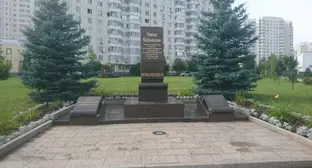
30 March 2010, 10:00
Geidar Djemal: there's no Caucasian trace in Moscow terror acts
The version that murdering innocent people, absolutely occasional metro passengers, is a revenge for liquidation of militants' leaders in the Caucasus is not true, as Geidar Djemal, leader of the Islamic Committee, said to the "Caucasian Knot" correspondent.
"It's obvious that no Caucasian trace can be here. The idea about revenge for liquidation of leaders can bring fruit only on consciousness of an ordinary person from the street. The population trusts in it, because it values itself too much. But the people can't guess that for the power, same for the opposition, for different reasons, a person from the street has no value," said Mr Djemal.
"And if to take the manner of action of the opposition in the attempts, say, on President Evkurov, or to assassinate Kadyrov, it was always a man-suicide-bomber, who tries to reach largest aims. If it proves to be impossible, rather many high-ranking MIA officers perish," he has noted.
"In the course of metro explosions labour migrants could be killed, just on their way to work, and low-qualified personnel - people who do not go in cars. Who can be interested, except for authors of political performances, who do it with the aim to affect the course of events in the country?" asked the leader of the Islamic Committee.
"First of all, I'd like to note that operative services never give out real information from the place of event; because, as a rule, this operative information is secret. Even if it is a domestic situation, usually such information is not given out. And here, on the contrary, they pour out abundance of the information, up to that at height of 120 centimetres where the source of explosion was placed, and so on," Mr Djemal has emphasized. "It means that there was a certain 'pre-fabricated message', which is now automatically thrown into the public consciousness. But by definition: everything what special services say about their operative information, gathered - allegedly - 'hot on trail', can't have anything to do with reality."
According to Geidar Djemal, Russia "sees a very tough struggle between supporters of liberal reforms and the power party; recently, there were quite a lot of 'flaks' on special services and, especially, on the MIA." "Since 2003, the MIA is under the FSB under Putin's initiative, and many people dislike it. They think that this subordination of the militia to the FSB made the former to be inefficient, demoralized it and so on," he said.
Alexei Malashenko, co-chairman of the programme "Religion, Society and Safety" of the Moscow Carnegie Centre, thinks differently. He views the Moscow metro terror acts as the response to the news course of Russian authorities in Northern Caucasus.
"They sent A. Khloponin, say, let's get engaged in economy, investments and so on, - it was a sort of a piece of light," Mr Malashenko gave his comments on the situation in his interview to the RBK-TV. "In this situation, the terror acts in Moscow are a signal from terrorists: that's for you to get engaged in economy; but we have been attacking and blowing up, and we'll go on attacking and blowing up; we have our own logic and our own interests; therefore, we'll live in parallel."
Author: Dmitry Florin Source: CK correspondent




